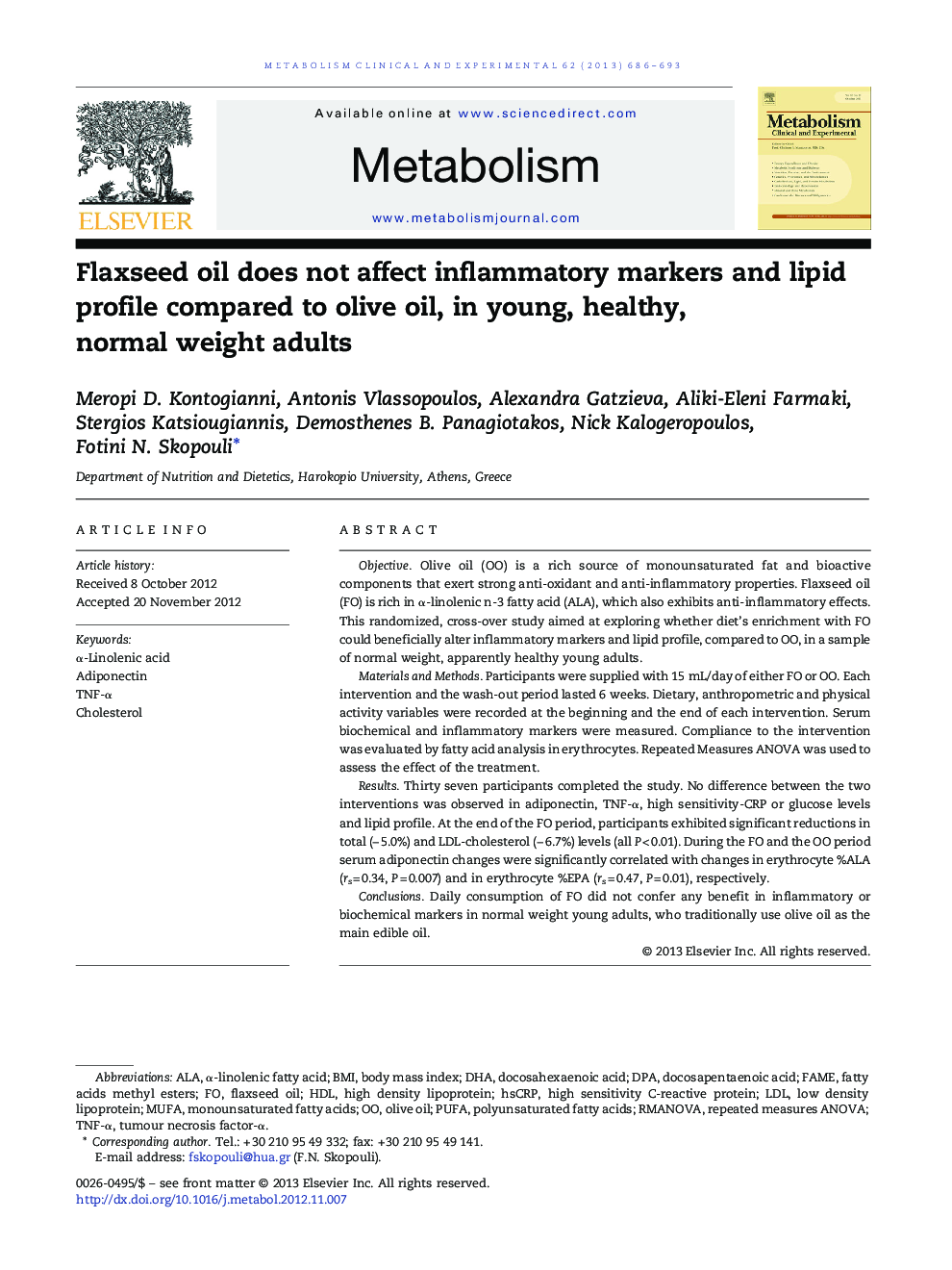| Article ID | Journal | Published Year | Pages | File Type |
|---|---|---|---|---|
| 2805585 | Metabolism | 2013 | 8 Pages |
ObjectiveOlive oil (OO) is a rich source of monounsaturated fat and bioactive components that exert strong anti-oxidant and anti-inflammatory properties. Flaxseed oil (FO) is rich in α-linolenic n-3 fatty acid (ALA), which also exhibits anti-inflammatory effects. This randomized, cross-over study aimed at exploring whether diet's enrichment with FO could beneficially alter inflammatory markers and lipid profile, compared to OO, in a sample of normal weight, apparently healthy young adults.Materials and MethodsParticipants were supplied with 15 mL/day of either FO or OO. Each intervention and the wash-out period lasted 6 weeks. Dietary, anthropometric and physical activity variables were recorded at the beginning and the end of each intervention. Serum biochemical and inflammatory markers were measured. Compliance to the intervention was evaluated by fatty acid analysis in erythrocytes. Repeated Measures ANOVA was used to assess the effect of the treatment.ResultsThirty seven participants completed the study. No difference between the two interventions was observed in adiponectin, TNF-α, high sensitivity-CRP or glucose levels and lipid profile. At the end of the FO period, participants exhibited significant reductions in total (− 5.0%) and LDL-cholesterol (− 6.7%) levels (all P < 0.01). During the FO and the OO period serum adiponectin changes were significantly correlated with changes in erythrocyte %ALA (rs = 0.34, P = 0.007) and in erythrocyte %EPA (rs = 0.47, P = 0.01), respectively.ConclusionsDaily consumption of FO did not confer any benefit in inflammatory or biochemical markers in normal weight young adults, who traditionally use olive oil as the main edible oil.
